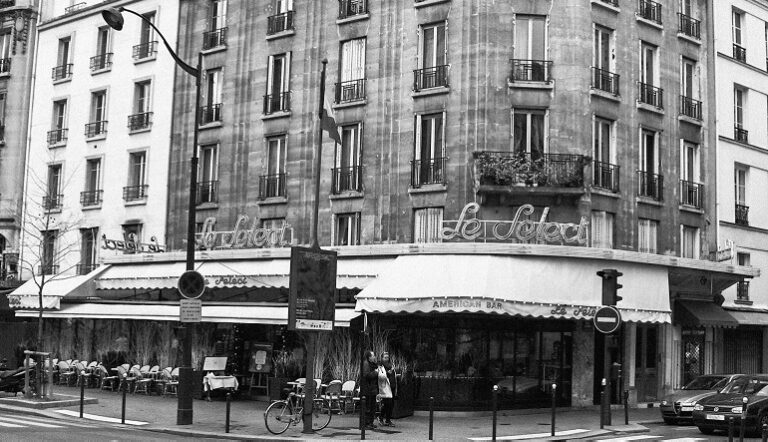Kate Baer and the Search for Grace

As a genre, the erasure, or “white-out,” poem demonstrates how a strict limit in form can offer great creative potential for freedom in content. The original text that a poet chooses to work with provides the raw material, and the poet’s usual task of creation turns into a task of elimination. A dramatically visual form, the erasure poem calls attention to the physical reality of words taking up space on the page. It also offers automatic intertextuality; in both process and product, the poem is always in conversation with its source text, highlighting words in new ways and teasing out their different meanings. The poem partially silences its source, often rendering it unrecognizable, but it also calls attention to the source and can amplify or set it in a new light. In I Hope This Finds You Well (2021), Kate Baer explores the potential of this form. The collection deals with themes of love, justice, and beauty, and ultimately illuminates the value of attention itself. Whether given to a text, person, or situation, attention can uncover hidden grace.
Each open-page spread in the book contains an erasure poem on the right and its source text on the left, like a sculpture positioned next to its original block of marble. Baer turns to social media for much of her source material, giving the erasure poem’s intertextuality further depth—the original text is always already part of a larger conversation. In “Re: Comment Section Under a Gay Couple’s Surprise Engagement,” Baer pares down a set of typical homophobic comments, many of them based in religious allusions to God’s intent, to the following poem:
God created
love
to
explain
the
world
inside
us
Here, the hateful comments of the original text lose some of their power. The gesture of erasure shows that they are just words, while also affirming the power of language by redirecting the comments’ power into the poem. Turning the whole paradigm of nature and divine intent upside-down, the poem’s message emerges as a different way of understanding love’s true meaning, a love-centered theology hiding in plain sight.
Many of the original texts of the collection come from Baer’s DMs, and sometimes the corresponding erasure poem reads as a direct response, a rejoinder expertly carved out of the original message’s own diction. In the poem “Re: My Black Friend,” the source message opens with the phrase “I hope this finds you well”; the DM’s author proceeds to criticize Baer at length for sharing anti-racist materials on her account. (The sender claims, “I am not a racist. I have African American friends.”) Baer’s erasure reads:
I hope this finds you
searching
for
every
voice
You have
cleverly
erased
The reference to the erasure of voices here calls attention to the form itself: in the act of erasing the words of the “I-don’t-see-color” white person, Baer is perhaps giving them a taste of their own medicine. The message here, though, is one of hope; the poem is less of a retort and more of a tender reminder to think a little harder, to look a little more closely at reality. The original DM crumbles under its own logic and contains the seeds of its own answer.
In this side-by-side format, Baer’s poems construct a whole altered universe to the right of the regular one, a universe where the beauty hiding in unlikely places is filtered into the foreground as if passed through a magic pair of glasses. In “Re: Your Mommy Pouch,” the original message advertises a detox cleanse targeted at Baer as a mother who supposedly needs to “take control and finally shed that mommy pouch.” Baer’s erasure gently suggests a different mode of change:
I hope this finds you
leaning
towards a
life
intent
on
love
The shallowness of the advertisement gives way to the depth of Baer’s short, charged message. The pivotal word “leaning” is erased from “house-cleaning,” as in: “it can be difficult to find time for self-care with all the house-cleaning and diaper-changing, but look no further!” Hidden in the mundanity of everyday hygiene, there’s a possibility for ongoing transformation: “leaning towards a life intent on love.” This message of love-centered “leaning” contrasts with the linear self-improvement approach of the weight-loss industrial complex. Here, personal transformation isn’t about pursuing a certain body shape; it’s about cultivating a practice with intention.
Like in the opening of “Re: My Black Friend,” the phrase “I hope this finds you” is repurposed in this poem, and revitalized in its new context. In both pieces, Baer’s erasure draws attention to the word “hope”—nearly empty of significance in the routine greeting “I hope this finds you well”—and reinfuses it with the meaning that it had all along. Hopefulness permeates the entire collection, which draws beauty out of even the ugliest conditions. In perhaps the most extreme example, one poem uses the transcript of Donald Trump’s infamous “grab them by the pussy” comment, which went viral in the build-up to the 2016 presidential election. In her erasure, Baer reframes the phrase “you can do anything,” making women the subject instead of the object:
women—
don’t wait
You can do anything
You can do anything
The poem rejects the message that “you can do anything [to women]” and recycles Trump’s words into a fierce declaration of agency. The virality of the original statement, repeated countless times through both social and traditional media, heightens the work’s intertextuality as it carries the baggage of the spiraling discourse from all sides that exploded after the footage was unearthed. The poem’s title, “Re: Boys Will Be Boys by Donald J. Trump,” engages with the excuses that were made on his behalf. In reclaiming agency over language itself and erasing the male subject altogether, the poem suggests a different way of interfacing with the discourse: “You can do anything.” The words of Trump’s original statement may confine the form of the erasure poem, but they can’t be allowed to define the terms of women’s actions and reactions.
With social media usage backgrounding the collection, every poem is a conversation that links into an unfathomable network of polemical dialogue where it can be hard to find moments of grace. The shortness of people’s attention spans is a common complaint on the internet, but Baer reverses this phenomenon by employing careful, searching attention to mine for poems. In “Re: Personal Branding,” a stranger in her DMs chastises her: “You would sell so many more books if you didn’t spend so much time posting your ugly leftist propaganda.” They proceed to rail against the practice of social media consciousness-raising, signing off with, “Sincerely, a lover of common sense.” From that final line, Baer takes the word “love” and arranges a response around it:
When
we
abandon each
other
we lose our greatest
power
the
ability
to
love
Here, Baer affirms solidarity with the various marginalized groups the stranger puts down and defends her right to use her platform to speak out about justice issues. It’s not a question of “brownie points” as the original DM insinuates, but is a question of love at its core. Looking more closely at her own “personal branding,” Baer sees the desperate human impulse not to abandon each other, sees love itself underpinning the fight for justice. The stranger’s harsh words fall away to reveal a rallying cry for thoughtfulness.
Not all of the source texts are nasty DMs and comments. One is a passage from the Book of Isaiah; some are encouraging messages from fans of Baer’s poetry and online presence. In “Re: Teaching Students the Art of Connection,” we see a note from a middle school teacher who reached out to tell her that they used her work to introduce students to poetry. The resulting poem reads like a statement of purpose for the book itself:
I
wanted
art
poetry was
hidden
in
so much
in so many ways
In addition to highlighting the form and process itself, this poem also gestures toward a larger sense of poetry hidden in the cracks of not-so-beautiful reality, “in so many ways.” Sustained attention can unearth beauty in the most unexpected places; connections can emerge where no communication seems possible. A friendly message from a stranger can touch the heart. Here, the poem and the original text converse amicably, two artists just seeking out art and sharing it with others.
The poems in I Hope This Finds You Well ultimately call upon the reader to look more closely at the world, to search for the beauty and meaning that can emerge between blank spaces. Baer’s use of social media content highlights how the whole world is hyper-connected, how people now have intimate access to strangers with the ability to harm or help in any given moment. This extreme human closeness, mitigated by physical isolation, can be hard to see. Like poetry, the utter entanglement of our lives sometimes lies hidden from view. Art can appear anywhere, and in that way, art is a little like grace.


